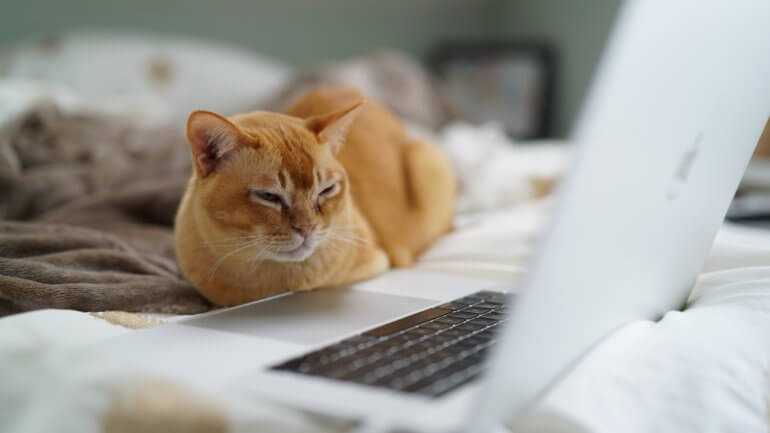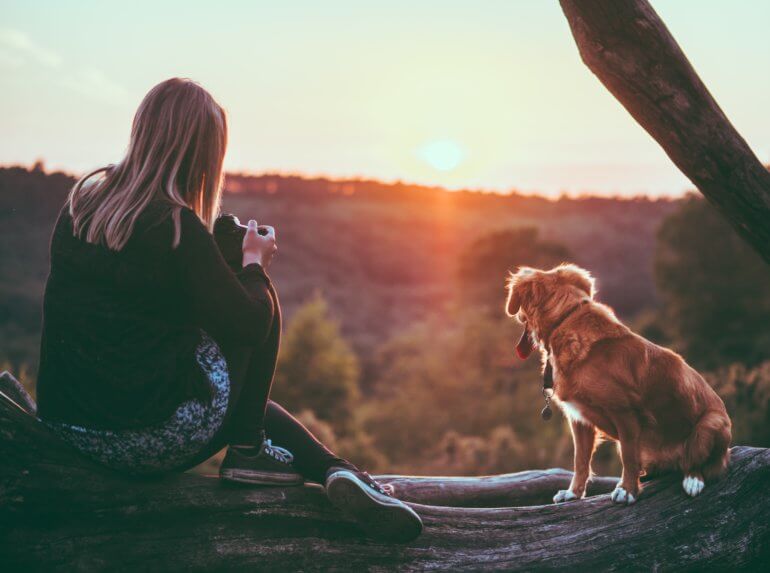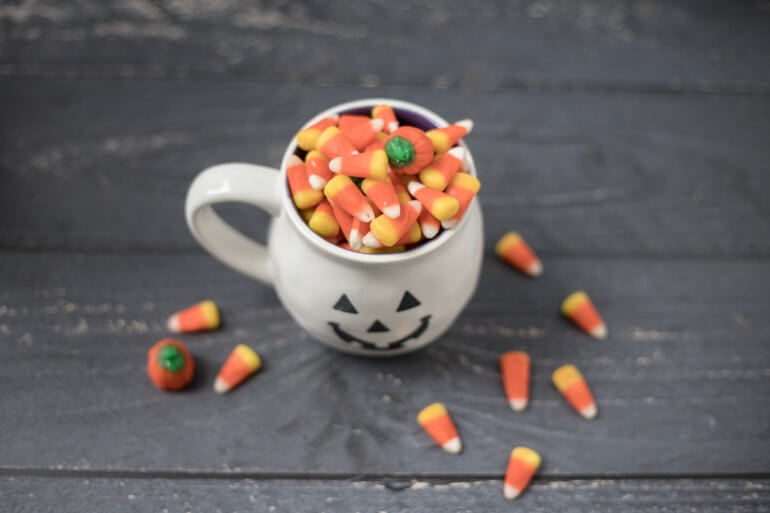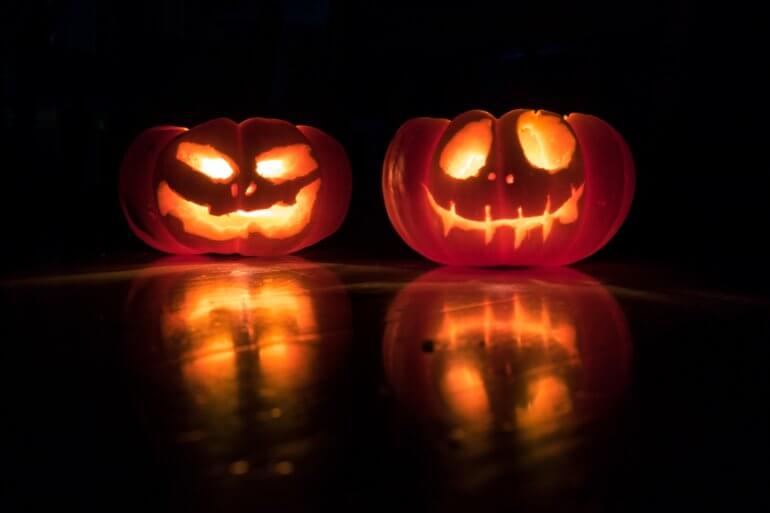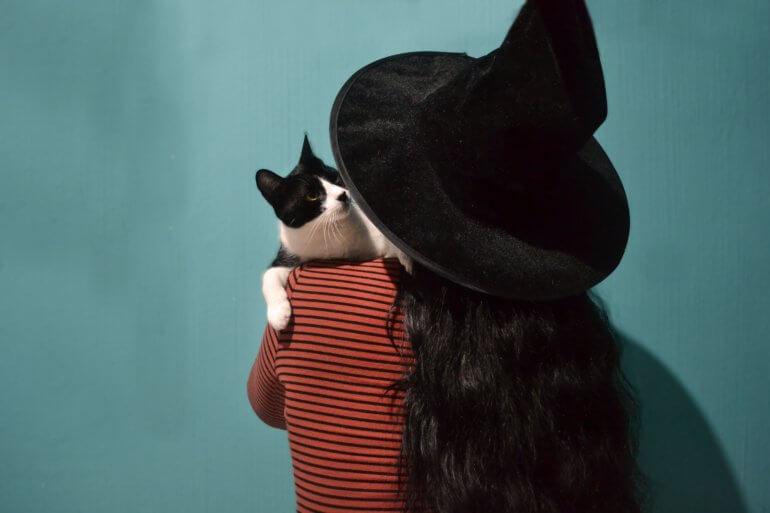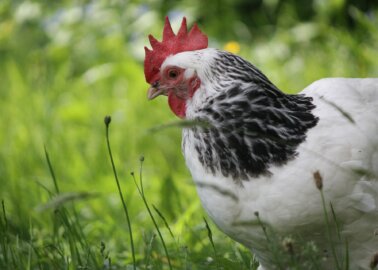6 Ways to Keep Animals Safe at Halloween
This Halloween, don’t be haunted by a mistake that causes your animal companion to become lost, sick, or hurt. Follow these tips to ensure that All Hallows’ Eve is delightful, not frightful, for animals:
- Keep cats and dogs safe from Halloween tricksters. Unattended animals – especially black cats – are easy prey for Halloween tricksters, so keep your companions safe indoors. A fence may not stop a cruel prankster, so even the back garden isn’t a safe place for an unsupervised animal.
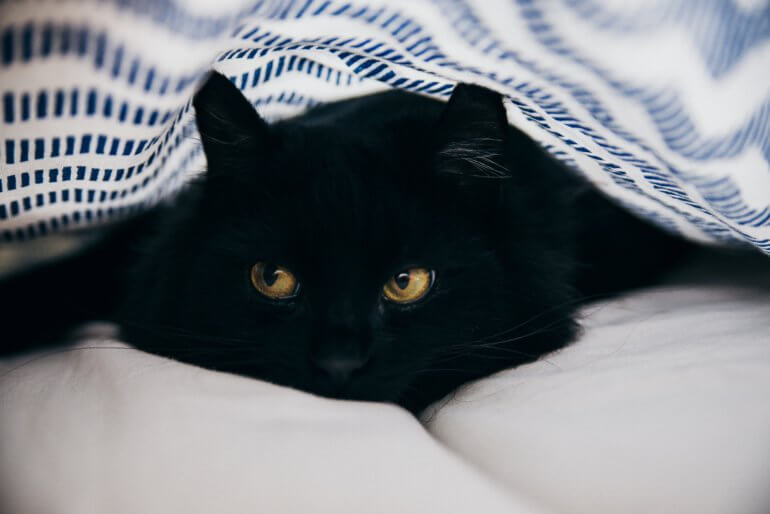
- Put the TV on to help your animal companions stay calm. A constant stream of “ghosts” and “ghouls” at the door can spook animals, so make sure they have access to a secluded room with a TV or radio playing to calm them.
- Walk dogs early in the day. It’s best to take your dog out for a walk long before the witching hour. Avoid a cauldron of trouble by making sure they’re microchipped and wearing current ID tags. And definitely don’t take dogs trick-or-treating – they can easily become frightened by the endless stream of laughing and screaming children.
- Prevent animals from goblin unhealthy treats. Ingredients like chocolate, nuts, raisins, and the artificial sweetener xylitol can be toxic to dogs and cats, so prevent animals from consuming them by keeping them out of reach and warning children and guests not to share sweets with animals. If your dog or cat eats one of these things, contact your vet immediately.
- Keep animals away from decorations. Take precautions to prevent dogs and cats from sticking their noses or paws into burning candles or lit pumpkins or becoming entangled in dangling decorations like streamers.
- Don’t force your animal companions to wear Halloween costumes. Being dressed in costumes can cause animals stress and impair their ability to see, move, and breathe, and small parts can pose a choking hazard. Be Frankenkind by leaving fancy dress to humans and letting cats and dogs be their naturally adorable selves.
If you spot animal victims of cruelty on Halloween or at any other time of year, call your local authority or the RSPCA to report the incident.
Check out our blog post full of tips on keeping cats, dogs, and other animals safe during fireworks season:


